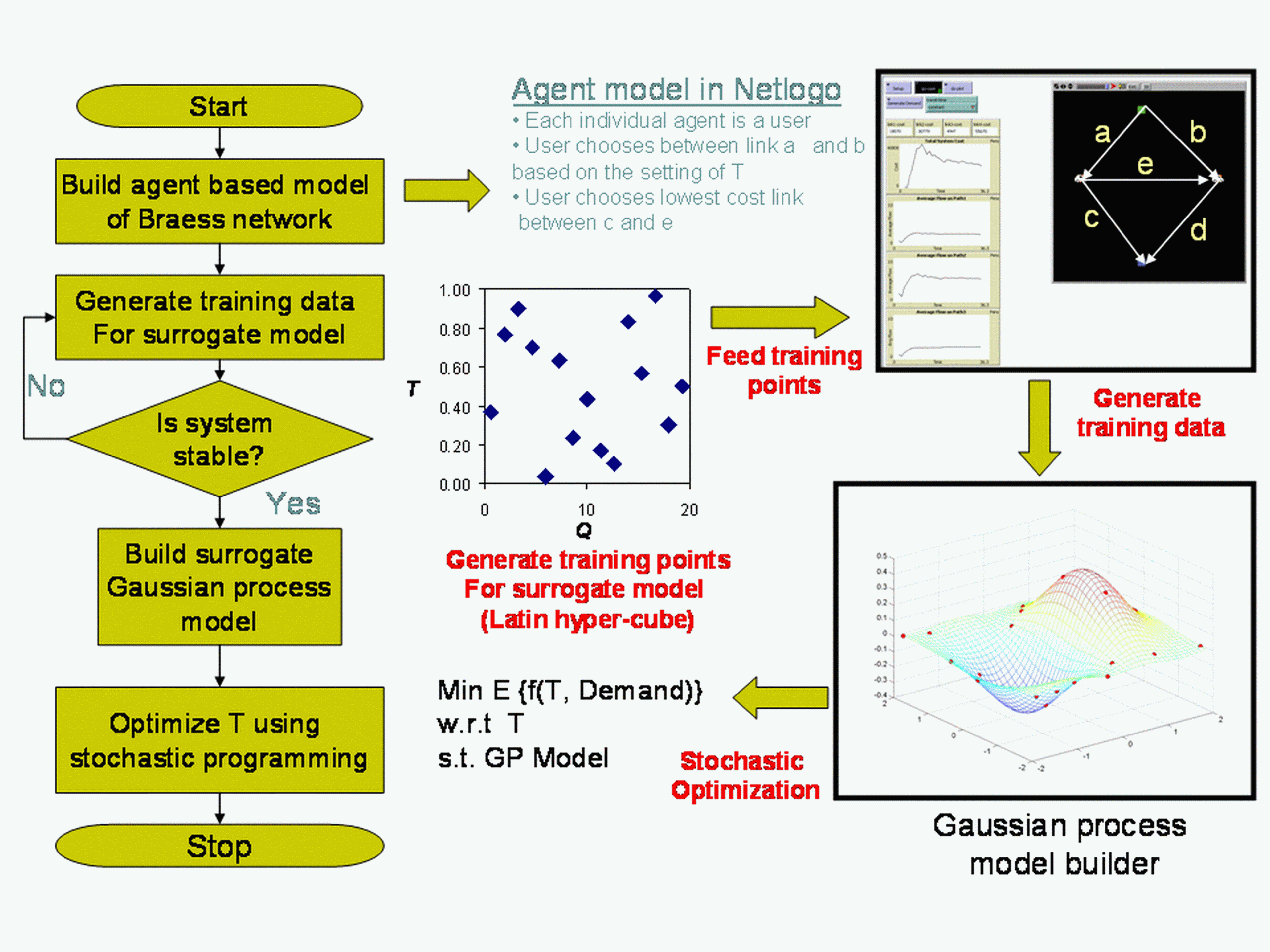Vanderbilt University
Engineering Capability Brief
Policy Design in Network Systems
VU Station B 351831, Nashville, TN 37235; 615-322-3040; fax 615-322-3365
E-mail: sankaran.mahadevan@vanderbilt.edu
Designing policies for real-world network-based systems with complex and dynamic system architectures and heterogeneous user populations is a difficult problem. Successful policy design requires simultaneous consideration of qualitative factors as well as quantitative measures, linking physics of the system behavior in terms of constitutive, design, manufacturing, and environmental variables, along with reliability and uncertainty considerations. A methodology for policy design in networked systems is presented. Agent-based modeling is integrated with stability analysis of dynamic systems, and optimization under uncertainty. The methodology is illustrated using a transportation network benchmark problem. Additionally bounded rational behavior of individual users are considered and modeled as software agents within a discrete time simulation framework. Largest Lyapunov exponent is used to identify the stability characteristics of the network system and a Gaussian process model is constructed as an inexpensive surrogate for the agent-based model. The Gaussian process model is then used within an optimization framework facilitating computational efficiency in policy optimization under uncertainty.
